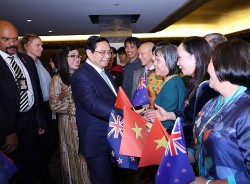
Vietnam and New Zealand strive to achieve a bilateral trade turnover of 2 billion USD this year
Latest
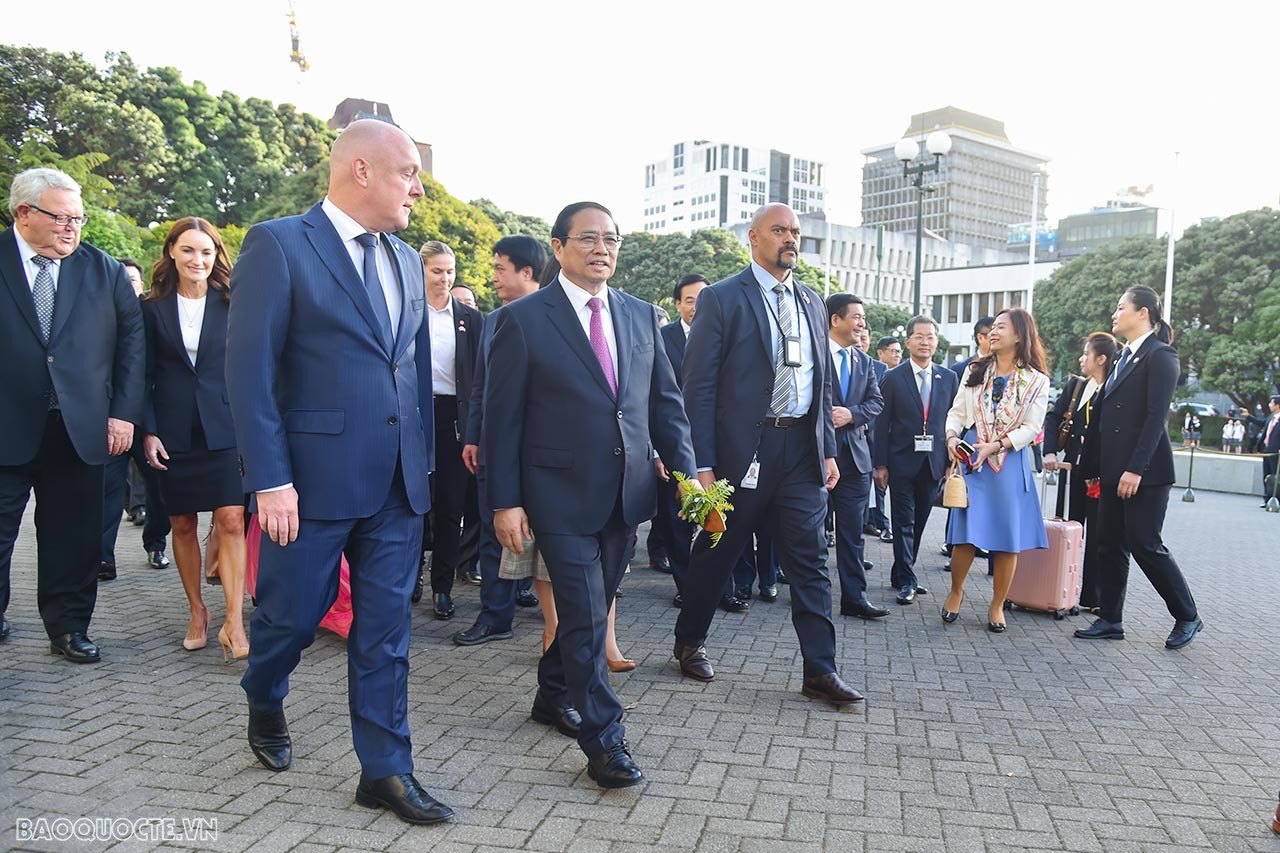 |
| VPrime Minister Pham Minh Chinh and his New Zealand counterpart, Christopher Luxon, delineated significant directions for enhancing cooperation between two countries. (Photo: Tuan Anh) |
The two leaders expressed satisfaction at the stable and increasingly effective development of their countries’ strategic partnership in all aspects, including politics - diplomacy, economy - trade, security - defence, education - training, agriculture, and labour, especially the frequent exchanges of high-ranking delegations and the good growth of bilateral trade, by 60% during 2017 - 2022.
To further intensify multi-faceted cooperation, first, they agreed to stabilise and consolidate political trust, strategic trust, and political - diplomatic cooperation to create a more solid foundation for bilateral ties. Vietnam and New Zealand will step up mutual visits and meetings at all levels and via all channels while effectively implementing cooperation mechanisms, including regular meetings between the Prime Ministers and Ministers of the two countries.
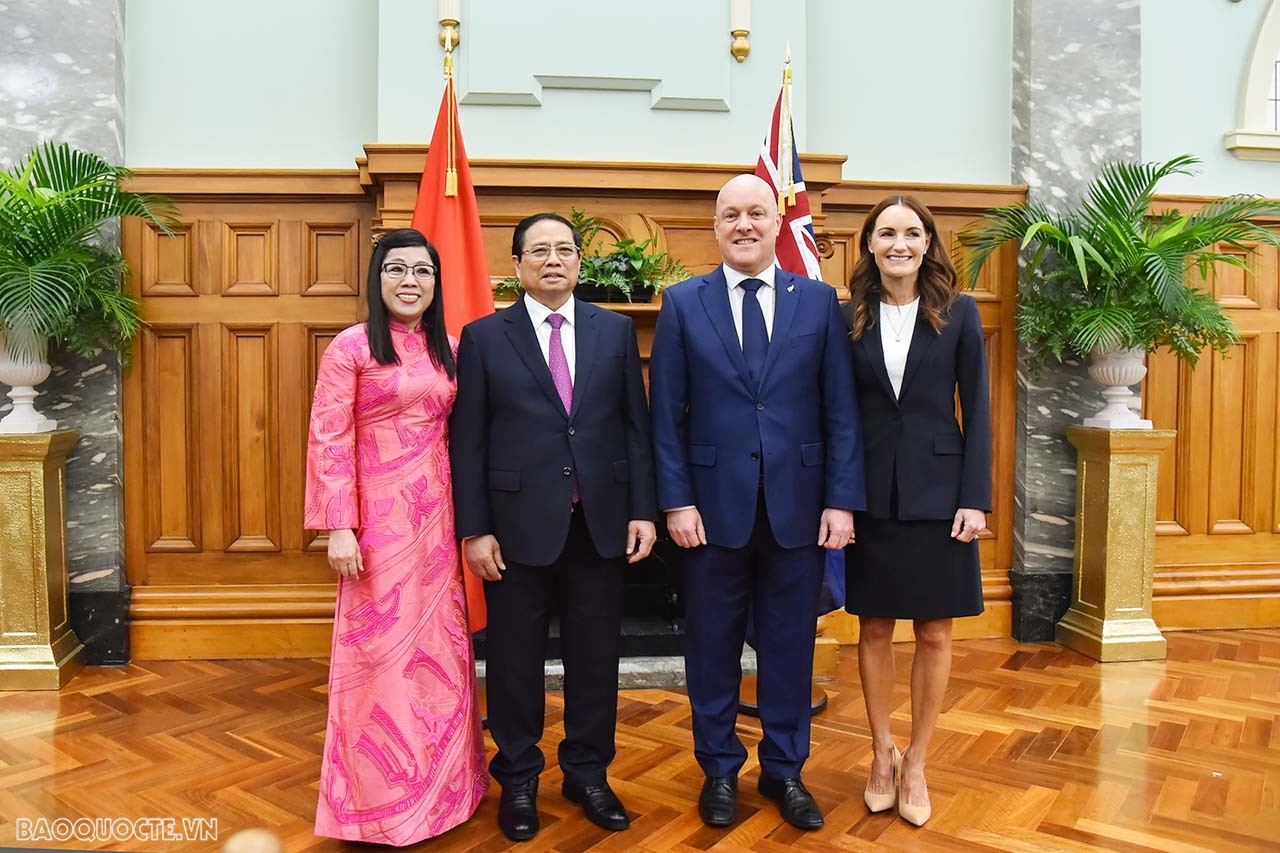 |
| Vietnamese Prime Minister Pham Minh Chinh and his spouse (L) and Prime Minister New Zealand Christopher Luxon and his spouse in Wellington on March 11, 2024. (Photo: Tuan Anh) |
On this occasion, Prime Minister Chinh, who is on an official visit to New Zealand, invited his counterpart to pay an official trip to Vietnam at a suitable time. Luxon accepted the invitation with pleasure.
The two sides also agreed to promote the fruitful implementation of the action plan for implementing the Vietnam - New Zealand strategic partnership 2021 - 2024, and soon build an action plan for the new period.
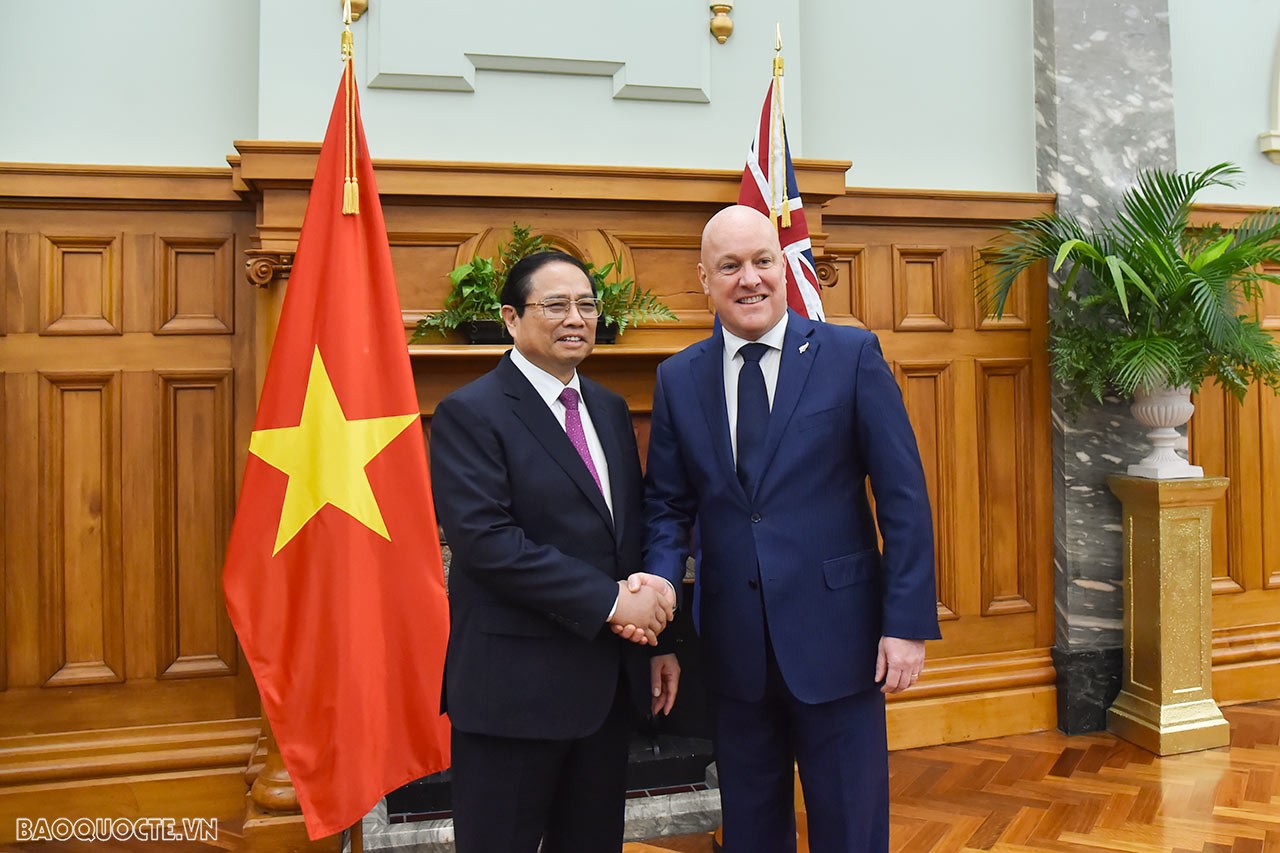 |
| Prime Minister Pham Minh Chinh (L) and his New Zealand counterpart Christopher Luxon in Wellington on March 11. (Photo: Tuan Anh) |
Second, the leaders concurred in enhancing and expanding cooperation in all important cooperation pillars of the strategic partnership, including economy - trade - investment, security - defence, agriculture, and people-to-people interaction.
Agreeing to foster economic, trade, and investment ties, they look to raise the countries’ trade revenue to 2 billion USD in 2024 and 3 billion USD in 2026, and soon double bilateral investment through appropriate measures, including opening markets and reducing trade barriers.
Vietnam welcomes New Zealand investment in all fields, particularly education - training, high-quality agriculture, and renewable energy, Prime Minister Chinh remarked.
At the talks, Prime Minister Luxon announced the launch of the third phase of a project on developing high-quality fruit varieties (Vietfruits) worth 6.24 million NZD (3.85 million USD) to help small-scaled passion fruit farmers and other stakeholders in value chains to increase productivity.
Amid uncertainties in the region and the world, the Prime Minister were unanimous in expanding defence - security cooperation; effectively responding to traditional and non-traditional security challenges that are increasing in the region, including transnational crimes, terrorism, natural disasters, and epidemics; and strengthening cooperation in peacekeeping, maritime security, and intelligence information so as to contribute to regional and global peace, stability, and cooperation.
The two leaders agreed to step up agricultural cooperation, including in climate change response and developing high-tech agriculture, plant saplings, and food safety management.
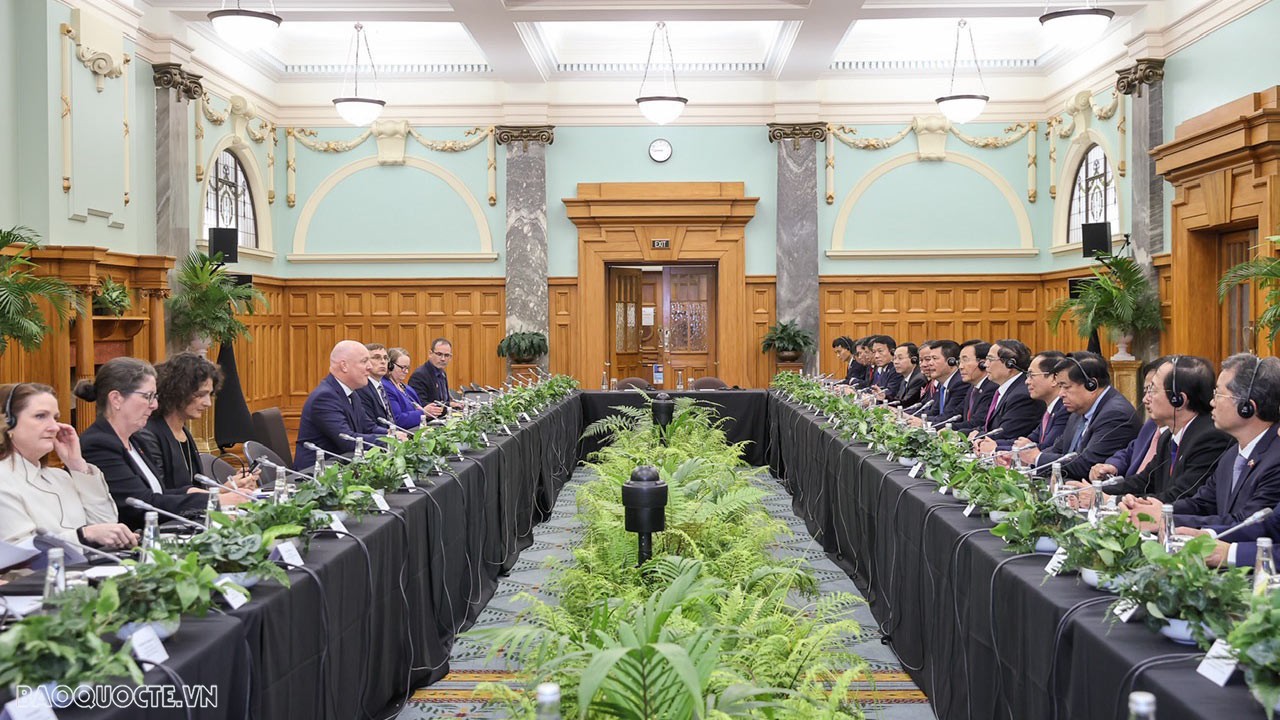 |
| The talks between the Vietnamese and New Zealand Prime Ministers in Wellington on March 11. (Photo: Tuan Anh) |
They reached consensus on expanding collaboration in culture, education - training, and people-to-people exchanges. Prime Minister Chinh showed his hope that New Zealand will increase scholarships for Vietnamese students, and its universities will strengthen links with Vietnamese counterparts, thus meeting the need for high-quality human resources of Vietnam. He added that the early reopening of direct flights between the two nations will be an important motivation to expand cooperation in these fields.
Third, the Vietnamese leader agreed to accelerate and make breakthroughs in cooperation in science and technology, innovation, green and digital economic development, environmentally-friendly technology transfer, emission reduction, and emerging technology industries such as Artificial Intelligence (AI), and semiconductor. He proposed creating breakthroughs in marine economic cooperation and marine environmental protection, accelerating labour cooperation and vocational training, and creating conditions for Vietnamese labourers to work in New Zealand.
Discussing regional and international issues, the two Prime Ministers affirmed to maintain coordination and mutual support at regional and international forums, especially the United Nations, the Association of Southeast Asian Nations (ASEAN) and ASEAN-led mechanisms, and the Asia-Pacific Economic Cooperation (APEC) forum; and back each other's candidacies at regional and international organisations.
| Vietnam rises to become regional trade, innovation hub: New Zealand experts |
| More from WVR |
Prime Minister Chinh thanked New Zealand for supporting Vietnam's candidacy to the UN Human Rights Council for the 2023-2025 term, congratulating New Zealand on successfully assuming the role as Chair of the Comprehensive Partnership for Trans-Pacific Partnership (CPTPP) in 2023, and affirming that Vietnam will actively promote practical cooperation programmes between ASEAN and New Zealand in its capacity as coordinator of ASEAN - New Zealand relations for 2024-2027. Prime Minister Luxon affirmed that New Zealand will support and cooperate closely with Vietnam when the Southeast Asian nations hosts the APEC Year 2027.
Regarding the East Sea issue, the two leaders reaffirmed the importance of ensuring peace, stability, security, safety and freedom of navigation and aviation in the East Sea; and addressing disputes by peaceful means, on the basis of respect for international law, especially the 1982 UN Convention on the Law of the Sea (UNCLOS). They agreed to share information and strengthen maritime cooperation, and strive together to turn the East Sea into a sea of peace, stability, friendship, cooperation and development.




